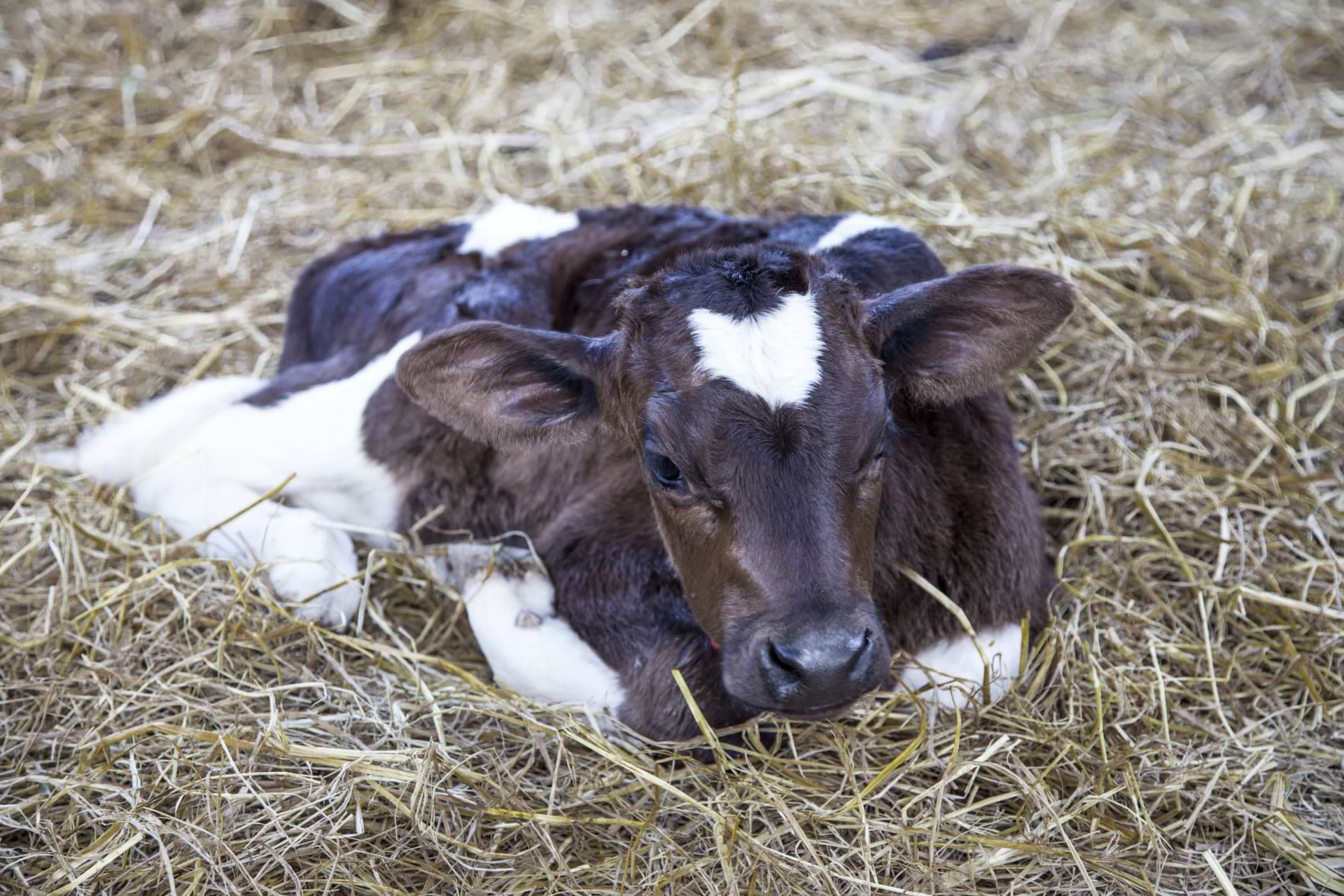Last updated on October 4th, 2023 at 03:53 pm
Imagine yourself in the midst of a busy calving season.
Are all your calves healthy and your life easy?
Or, are you out treating sick calves that are fighting scours day and night?
Maybe you’re somewhere in between; you have a few cases here and there; but regardless, scours is still costing you time, labor, and money. No doubt, every one of you would love to be in the first situation; your calves are all healthy, and scours are almost unheard of.
Unfortunately, that’s not usually the case.
Scours is one of the most common causes of death in young calves. Even if you only have a couple of cases in your herd, it can take a hard hit on your bottom line. Besides the cost of medicine and your own time put in, scours can cost you weight gain on calves. When calves are sick early in life, it is much more challenging for them to perform to their full genetic potential as they grow and develop.
The Dreaded, Infectious Calf Scours
Scours is a form of diarrhea that is usually caused by a virus, bacteria, or microscopic parasites; what you probably refer to as coccidiosis, crypto, rotavirus, or another similar disease. Unfortunately, the pathogens in scours spread extremely easily, and can quickly contaminate water, the ground, and any nearby feed.
That means that even if only one calf gets scours it can spread, just by that calf walking around, consuming feed, and pooping. Then it only takes a few more calves to get scours, spread the pathogens a little further, and soon, contaminate the whole herd.
The Permanent Impact of Scours on Calves
The pathogens in scours are detrimental to the intestinal tract. That tract includes the rumen, and is an essential part of digestion. The pathogens cause the intestinal lining cells to stop working properly, and sometimes even kill them. In some extreme cases, the pathogens go deeper into the intestinal lining and destroy it completely. At that point, you can see the effects for yourself; the treatment comes straight out in the diarrhea.
When scours reaches that stage, treatments are sometimes no longer effective. The calf’s body is trying to rebuild the intestinal lining and will struggle to digest anything you administer to it.

When circumstances get that bad, the calf is negatively affected for the rest of its life. If parts of its intestinal tract have been harmed or destroyed, it will never get built back up to its full strength and effectiveness. Although it will repair itself a bit, the tract will never be back to normal, meaning the calf won’t be able to convert feed as well and ultimately, won’t gain as much as it could have in the months to come.
How Can You Prevent Calf Scours?
It’s absolutely crucial to get ahead of sicknesses like scours that can have negative long-term impacts. By doing all you can to prevent sickness before the calf is born, you are setting the calf up to have an unblemished intestinal tract during its whole life, meaning high performance and the best possible return on investment for you.
To prevent things like scours, you must focus on the animal’s gut and optimize its digestion. Does the calf have what it needs to not only digest its own feedstuffs and pull nutrients from them but also to fight off disease and sickness?
Imagine a calf’s gut to be like a football field. You’re probably thinking we’re crazy - but read on.
On a football field, there are two teams: the team you want to win, and the team you want to lose. The team you’re rooting for (the good rumen microbes), versus the opponent (the bad bacteria).
Now, if one team has double the players of the other team, they are far more likely to win the game, right? In a calf’s gut, we need the ‘good guys’ to win in order for the calf to fight off sickness effectively. That’s why it’s critical to ensure that there are far more good microbes in the calf’s gut compared to bad ones.
By putting a focus on aiding and optimizing the microbes and fungi in the rumen and creating more of them, it simply means you have more players on the good team. There will be more microbes that can take over the bad bacteria and get them out of the gut completely.
What Can You Do to Increase Good Rumen Microbes?
The simplest way to increase rumen microbes is to feed them! As we always say… “Feed the bugs that win the war!”
How can you feed the millions of microscopic bugs inside a cow’s rumen? Excellent question.
By providing your herd with high quality, 100% protected trace minerals and a multiple component digestion pack, you are giving the rumen microbes what they need to multiply, become more efficient, and more active. With increased hyper-activated good microbes in the rumen, the animal can pull more nutrients out of every mouthful of forage, meaning a healthier immune system and a better chance of fighting off sickness.
Riomax’s synergistic blend of Esqort® (100% protected trace minerals) and Nutrizorb® (19-component digestion pack) does just that. Instead of feeding the animal the traditional way, direct-fed, Riomax uses Indirect Supplementation Technology (IST). Instead of just feeding the animal, we feed the bugs that feed the animal.
It can be a difficult concept to grasp, so we’d encourage you to visit our Science Page to learn more about the components and how they work synergistically together.
Reduce & Prevent Calf Scours on Your Operation
The better the gut environment, the stronger the immune system, and the higher chance the calf has of fighting off the sickness.
Are you confident that your calf crop will have what it takes to fight off scours and other sicknesses? Take action today to save your calves, your time, and your money!



